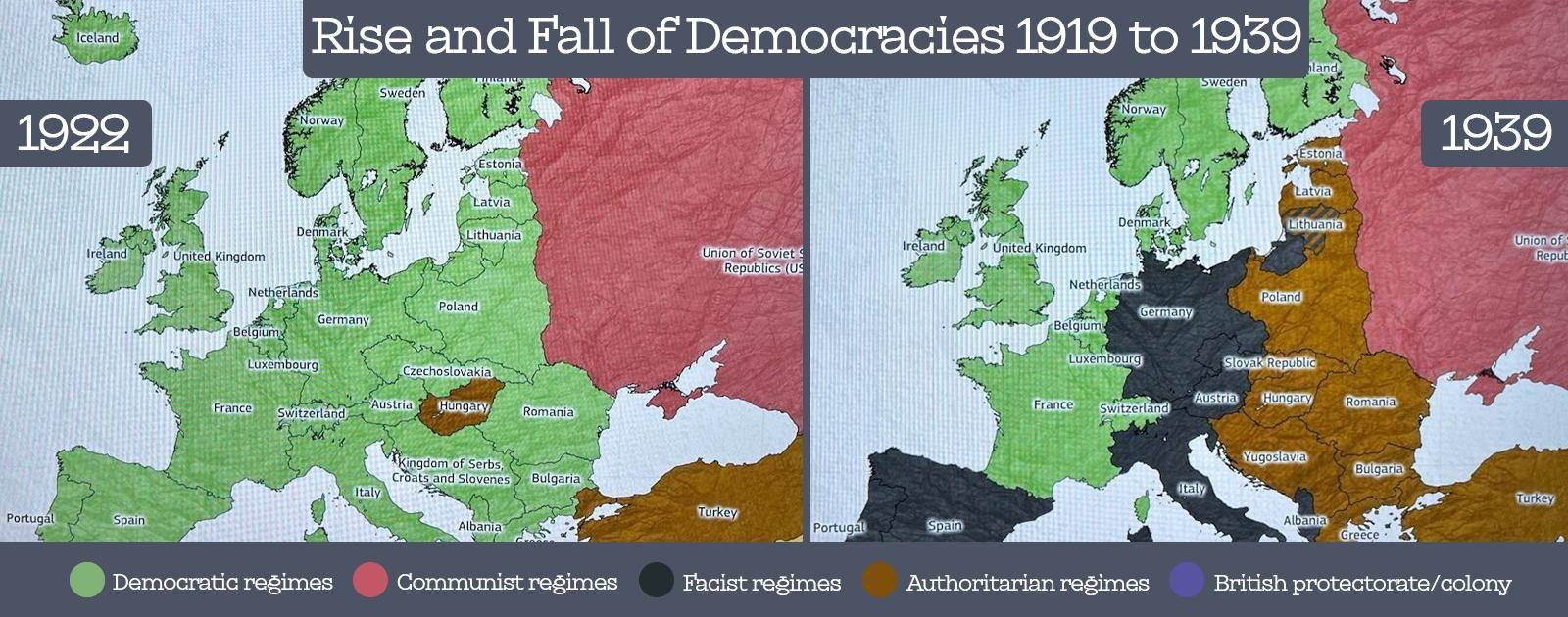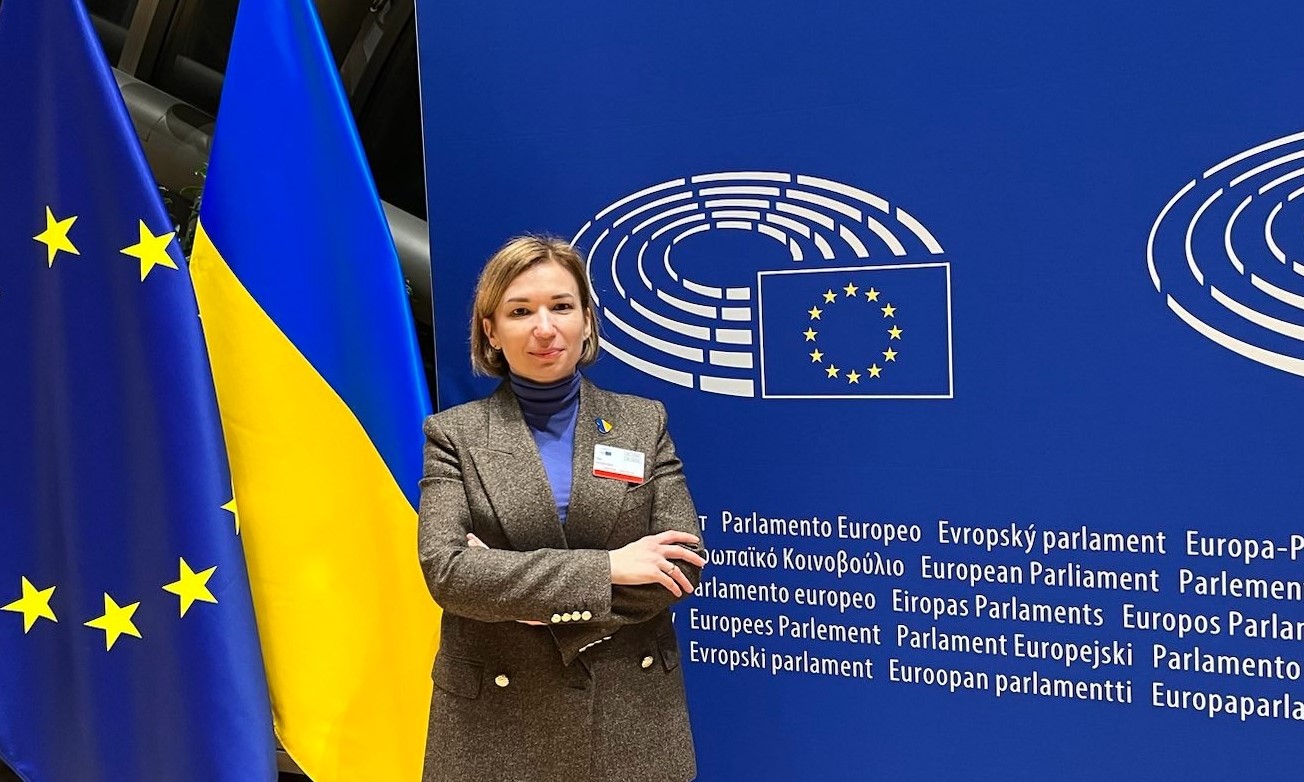The 15th annual meeting on the implementation of the Declaration of Principles for International Election Observation (DoP) is taking place in the European Parliament in Brussels on December, 6-8.
The event engages organizations acting in the field of international election observation. In particular, Olha Aivazovska, Chair of the Board of Civil Network OPORA, who also heads the Board of the Global Network of National Election Observers (GNDEM), is the speaker at the event.
Below, we publish the text of Olha Aivazovska's speech at the opening of the event. It tells about how different Ukraine is from russia and why Ukraine needs to be supported.
I have been working in the field of elections for 18 years now. This gives me certain say and authority to claim that all our successes are reversable. Countries that have made progress in fair and free elections could fall into the abyss of semi-authoritarian regimes in a few years, where voting is only an instrument of formally legitimate tampering with the topic of the legitimacy of that regime.
In 2004, when the elections in Ukraine were deliberately and predictably falsified in favor of Yanukovych, I was a member of the commission, which had a formal law on its side, but not the CEC or the state. In any case, a person with the law in their hands and beliefs in their heart will do more than the one who is armed with playbooks or guidebooks.
If the society had not prepared for the resistance and had not walked out to the Maidan, Ukraine would already have become half-russia or Belarus. Take a look at the map of Europe in 1922 and compare it with the map for 1939.

You will see that a continent that used to have only two authoritarian regimes (Hungary and Turkey) turned into a medley of fascist and authoritarian countries.
Hitler came to power through intrigues and formal elections. Certainly, this was happening in times when international law was not in force; there were no universally recognized principles and standards, and independent monitoring did not exist as a phenomenon. However, it is also about deception and loyalty that create the prerequisites for the tragedies to unfold.
The name of our event includes the word "principles" because communities are built around them. What is important, though, is that principles are not about talking the talk but rather about fighting the fight.
Ukraine has always paid a very high price for our choice. I won't be saying it wasn't scary back in 2004. They planned to initiate criminal proceedings against one of my colleagues in order to put him in prison for murder (to pin on him someone else's crime). Several others were kidnapped and carried for half a day, blindfolded, in a car by law enforcement officers.
I was beaten at a peaceful protest by militiamen. As soon as during the Revolution of Dignity in 2014, Bohdan Solchanyk was killed, who in 2004 was leading students from half of Kyiv universities to Maidan, in the center of the capital city. Today, all Ukrainian people have to lose something but the data and sentiments of citizens are unambiguous – we have been fighting, we are fighting and will continue the fight.
Do you know who was frightened the most by the 2004 Maidan? You know the answer to that question.
Vladimir Putin was mentally traumatized by the fact that the people can change history. Everyone was aware of that, including our partners. But after all the tampering with the elections in Russia, their results kept being accepted at the political, geopolitical, and diplomatic levels. It is a big mistake because the de facto tolerance for falsifications fueled the appetite of the authoritarian regime.
The strength of civil society is that if it has the inner will to fight, it does the right thing at the right time. Therefore, international monitoring missions cannot ignore the role of non-governmental organizations.
I hereby reiterate: values are what we are willing to pay a high price for, and it is paid by citizens.
For me, democracy fits within the three words:
- participation – society is willing to and consciously participates in the management of their state;
- security – because only democratic governments are safe for every citizen, as well as their neighbors; only such systems of governance do not kill or destroy for the sake of absurd self-proclaimed missions of the autocrats;
- justice – because the unavoidability of consequences for violations of human rights, of political rights, is a prerequisite for the sustainability and security of the democratic system.
Yesterday, we trained the police to investigate electoral crimes and document electoral fraud. Today we have to work with war crimes and crimes against humanity. This is a crude reality. The positive conclusion is only that sustainable communities are very adaptable to new challenges in their society and in the country. Everything can be learned except being HUMAN. But it is also about the need to develop a philosophy of cooperation between local organizations and international communities.
I want to thank the EU. You are doing something that will never be enough for Ukraine at this moment, but it is also many times more than anyone could have dreamed of.
I have always been optimistic about the EU. Today, this union is not without its bottlenecks, but they are so strong in their positions they have never been before February, 24. Thank you for that.
Thank you for the EU candidate status for Ukraine. Because this is your way to recognize that our society and state are not perfect or ideal, the same as all others, but we had fair and free elections, even in the war settings. You have recognized that democracy is valuable and that it must be taken into account while working to strengthen the RULE of LAW.
